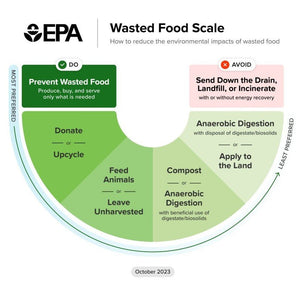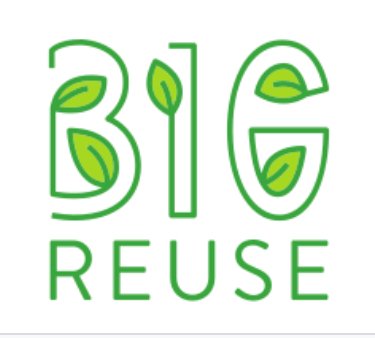In a new report released by the EPA last month, researchers concluded that 58% of methane emissions from landfills are a result of food waste. This is comparable to the greenhouse gas emissions of 50 million gas-powered vehicles! From 1990 to 2020, nationwide methane emissions from landfilled food waste nearly tripled, the report found.
The EPA has also released a new graphic which ranks the best practices for managing food waste. The most preferred practice is to avoid food waste altogether by only buying and serving what is needed. More than one-third of the food produced in the US is never eaten, and in addition to the methane emissions created during decomposition there is also the negative impacts of food production, transportation, processing and distribution.
The next best practice is to donate or upcycle. Most of us are familiar with donating food to shelters, food banks, and community fridges, but if you need ideas or guidelines check out the EPA's food donation page. Upcycling food refers to using scraps to create other food products. For example: using unwanted broccoli stems to create a slaw.
Certain types of safely processed food waste can also be fed to animals, which prevents food waste and avoids the environmental impacts of the processing of animal feed. Crops that are damaged, inedible or otherwise unneeded can also be left unharvested, this provides the soil with the plant's nutrients and carbon which supports soil health.
Composting is the next best practice, and likely the most practical for your daily personal food waste in NYC! Composting is what we do at our sites in Brooklyn and Queens, its the process of breaking down organic materials such as wasted food and yard trimmings in an oxygen-rich environment. Our compost is then used as a soil amendment to build soil health, increase water retention, and reduce erosion.

